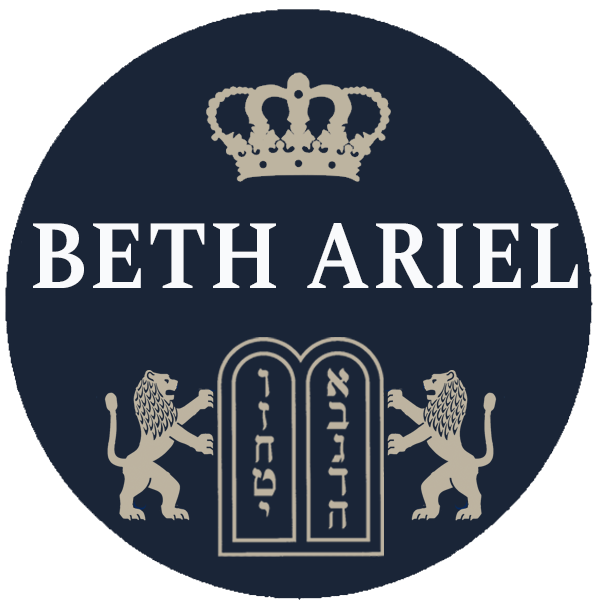Rosh Hashanah (“The Head of the Year”) is the fifth of the seven holy observances mentioned in Leviticus 23. This name is never used in the Scriptures to refer to this feast, despite the fact that it is the most common name used today. This name is used because the Rabbis believed it was on this day that the creation took place. Thus, it has become known as the beginning of the Jewish civil calendar year.
In the Bible, Rosh Hashanah is called “Yom T’ruah” (“A Day of Blowing”) referring to the blowing of the “shofar” or ram’s horn (Numbers 29:1). It is also called “Zicharon Teruah,” (“a memorial of blowing,” or “a remembrance of blowing”) (Leviticus 23:24).
Rosh Hashanah occurs on the 1st of Tishrei (the seventh month in the Hebrew calendar), whereas Yom Kippur (the next major festival) is observed on the 10th day of Tishrei. The ten days between Rosh Hashanah and Yom Kippur are called “Yomim Naraiim” or “Days of Awe.” It is during these ten days that Jewish people are to perform deeds of repentance and restoration in order to be assured that their sins are forgiven on Yom Kippur.
Most notably Rosh Hashanah is known for the blowing of the ram’s horn. According to the Rabbis the sounding of the ram’s horn symbolized the final regathering of the Jewish people when Messiah comes, and the dead are resurrected. In Isaiah 27:13 we read:
“And in that day a great trumpet (shofar) will sound. Those who were perishing in Assyria and those who were exiled in Egypt will come and worship the Lord on the holy mountain in Jerusalem.”
With this the B’rit Hadashah (“New Testament”) agrees. Matthew 24:31 states,
“And he will send his angels with a loud trumpet (shofar) call, and they will gather his elect from the four winds, from one end of the heavens to the other.”
In this verse Yeshua prophesied four things will happen at His second coming: First, angels will be sent out to regather the Jewish people. Second, this event will be accompanied with the blast of the shofar. Third, the focus is the regathering of the “elect” or “chosen,” by which is meant the Jewish people. Fourth, this regathering is from a worldwide dispersion.
In I Thessalonians 4:13-18 Rosh Hashanah finds its fulfillment in the “rapture” of the believers. In verse 16-17 Paul writes:
“For the Lord himslef will come down from heaven, with a loud command, with the voice of the archangel, and with the trumpet (shofar) call of God, and the dead in Messiah will rise first. After that, we who are still alive and are left will be “caught up” together with them in the clouds to meet the Lord in the air. And so we will be with the Lord forever.”
The term “rapture” is derived from the Latin translation of the Greek term translated “caught up.” It refers to the moment when believers are instantaneously transformed and immediately brought into the presence of the Lord. In this passage Paul lists for us six stages in the rapture of the believers. First, the Messiah will descend from heaven to the clouds above. Second, accompanying Messiah will be the voice of a loud command. Third, the command will be shouted out by Michael the arch-angel or “chief angel.” Fourth, in addition to the command of Michael will be the blast of the shofar. Fifth, the “dead in Messiah” will be resurrected. The “dead in Messiah” refers to all believers from the formulation of the “ekklesia” (the “church,” or “called out ones”) which began in Acts 2 and comes to an end with this event, the rapture. Sixth, following the resurrection of the dead “in Messiah” those who are alive at the time of this event will be instantaneously transformed and together with the resurrected “dead in Messiah” be “caught up” to meet the Lord in the clouds. The result being that we will ever be with the Lord.
In First Corinthians 15:51-53 Paul states,
“Behold, I tell you a mystery: We will not all sleep, but we will all be changed — in a flash, in the twinkling of an eye, at the last trumpet. For the trumpet will sound, the dead will be raised imperishable, and we will be changed. For the perishable must clothe itself with the imperishable, and the mortal with immortality.”
First, by “mystery” Paul means a truth or revelation that has not been made known before. Something that Paul is given the privilege of revealing for the first time. First, there will be an event when the believers living at the time it occurs will not ever experience death. Second, a “change” or “transformation” will occur that will happen in an instantaneous flash of time. Third, this event will be accompanied by the “last shofar” blast. Reference is to the last of the soundings of the shofar on Rosh Hashanah called “tekiah gedolah.” This blast of the shofar brings to an end Rosh Hashanah. Likewise, the sounding of the shofar at the rapture (I Thessalonians 4:16 & I Corinthians 15:52) will bring to a conclusion the “ekklesia.” Fourth, both the dead in Messiah and those alive will experience the change or transformation from a body that is described as “perishable,” and “mortal,” to a body that is “imperishable,” and “immortal.” The result being that “death has been swallowed up in victory” (I Corinthians 15:54).

